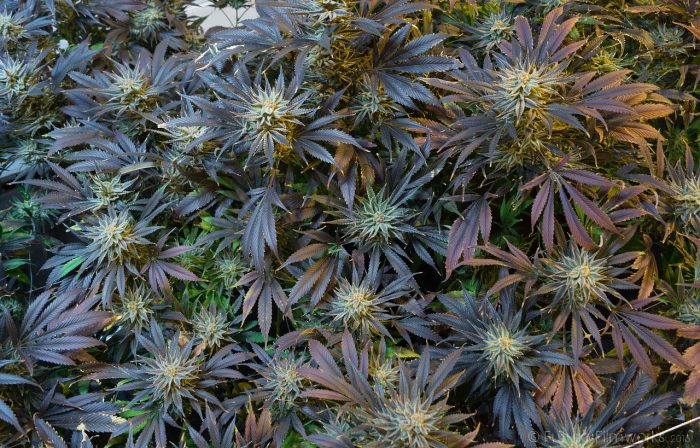As with industrial hemp, many myths surround medicinal cannabis. This misinformation presents a hurdle to it being more broadly accepted and hinders awareness of the many potential benefits of cannabis medicines. Let’s take a crack at busting a few of these myths.

Myth: Medical cannabis hasn’t been well-studied
This isn’t the case at all – there are hundreds of peer-reviewed studies now published. In our news section, it seems a week doesn’t go by without us mentioning a new study.
What we mention on HempGazette is just the tip of the iceberg. The following terms link to results on Google Scholar:
As you’ll see, there is no shortage of studies – and new research is being undertaken regularly. But much more needs to be performed.
Myth: Medical cannabis leads to other drug use
While we’re not going to get into the recreational marijuana debate as it’s not the focus of this site; rather than medical cannabis leading to other drug use, some evidence suggests it is replacing other risky addictive drugs including opioids and tranquilisers.
For example, University of Mississippi researchers have found more evidence the non-intoxicating cannabinoid cannabidiol could help address the scourge of opioid medicine abuse and addiction.
Another example is a survey of medical cannabis users that found 97% “strongly agreed/agreed” they were able decrease their opioid use when using cannabis – and many said it was more effective.
That’s just a couple of instances – if you use the search feature on this site using the term “opioid” as an example, you’ll find quite a few others.
Myth: Legalising Medicinal Marijuana Leads To An Increase In Crime
Rather than increasing crime rates, it seems the presence of medicinal cannabis dispensaries decreases it. A study out of University of California, Irvine, found that contrary to popular belief, medical marijuana dispensaries reduce crime in their immediate areas and crime increases again when they are forced to shut down.
Myth: Legalising Medical Cannabis Leads To An Increase In Teen Use
A number of studies have indicated the implementation of medical cannabis laws does not result in an increase in marijuana use among teens/adolescents – some of these studies can be viewed here, here, here and here.
Myth: Medical Cannabis Has No Proven Medical Use
This is one of the myths that has kept cannabis as a Schedule 1 substance in the USA at a federal level. One of the conditions for a substance to be listed as Schedule I is that it “must have no currently accepted medical use in the United States”.
With more than half of U.S. states now having medical cannabis laws and other countries also doing the same, this is a very strong indicator that it certainly does have accepted medical uses.
Again, a search of Google Scholar or even this site will reveal a number of studies showing medical cannabis providing benefit in treating and/or managing a range of debilitating conditions.
Myth: Using Medical Marijuana Is Just An Excuse To Get High
For many people who use medical cannabis, experiencing a high isn’t the goal, nor is it even desirable. These people use it to relieve symptoms and to enable them to function at a level approaching normal that they otherwise wouldn’t be able to achieve.
Furthermore, some forms of medicinal marijuana simply do not provide a high, regardless of dosage. For example, cannabidiol (CBD) and Tetrahydrocannabinolic acid (THCA – not to be confused with THC) are non-intoxicating.
Myth : Medical Cannabis Overdose Deaths
The number of deaths attributed to cannabis overdoses in the USA is zero, zilch, zip, nada and none. This claim isn’t just wishful thinking from supporters, but based on a U.S. Drug Enforcement Administration report that simply states:
“No deaths from overdose of marijuana have been reported”
The reason for the lack of deaths is thought to be that, unlike opioids and benzodiazepines, cannabis does not interfere with the functioning of the respiratory system.
Myth : The United Nations Has Banned It
Some mistakenly believe the UN Single Convention on Narcotic Drugs of 1961 bans medical cannabis. However, the wording the document uses is (emphasis ours):
“The use of cannabis for other than medical and scientific purposes must be discontinued.”
Myth : Medical Cannabis Is A Workplace Safety Threat
No more so than any other conventional medication with similar properties; and as mentioned, some cannabis medications are non-intoxicating. As for the ones that are; it’s about dosage as to its potential impact on workplace safety – just the same as drugs such as Valium that can seriously impair a person.
Myth : Marijuana Can Cure Just About Anything
We’re understandably enthusiastic about the huge potential for cannabis medicines. However, we find it unsettling to read about it being a panacea – a cure-all. Some truly outrageous claims have been made with no scientific evidence to support them. While the number of conditions where medicinal cannabis may provide some benefit is lengthy, it’s also important to understand the difference between curing a disease and managing its symptoms.
… while you’re here, check out our article on industrial hemp myths.

